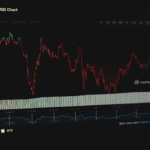
The digital asset markets have experienced exponential growth over the last decade. However, the evolving regulatory landscape remains a pivotal force in shaping their future. Governments worldwide are increasingly implementing regulations aimed at enhancing transparency, consumer protection, and security within the industry. These regulatory shifts can have profound effects on market behavior, investor confidence, and overall market structure. In this blog, we will explore how regulatory changes impact digital asset markets, highlight recent developments, and provide insight into how investors can adapt to these evolving landscapes.
How Regulatory Changes Affect Digital Asset Markets
Regulatory developments in the digital asset markets aim to provide structure and control to an industry that has operated largely without oversight for years. On the one hand, these regulations bring much-needed legitimacy to digital assets, fostering trust among traditional investors. On the other hand, regulations can restrict certain market activities, limiting speculative practices or even barring access to certain regions.
When new regulations are introduced, they often prompt a temporary decline in digital asset prices as investors react to uncertainty. However, over time, as the market adjusts and compliance frameworks are established, these regulations tend to stabilize the market by creating clearer operational boundaries. Regulated markets also attract institutional investors, enhancing liquidity and reducing market volatility.
Recent Regulatory Developments
Several major regulatory developments have emerged in recent years, signaling a shift in how digital assets are governed. In the United States, the Securities and Exchange Commission (SEC) has ramped up enforcement actions, classifying certain digital assets as securities. This classification requires issuers to adhere to strict disclosure requirements, bringing increased scrutiny to Initial Coin Offerings (ICOs) and decentralized finance (DeFi) projects.
The European Union’s Markets in Crypto-Assets (MiCA) regulation is another significant development. MiCA aims to create a unified regulatory framework across Europe, focusing on investor protection, anti-money laundering measures, and market integrity. This regulation is expected to enhance cross-border operations for digital asset firms while ensuring greater oversight.
Additionally, some nations, such as China, have implemented outright bans on cryptocurrency trading and mining, significantly influencing market behavior in those regions. Other countries, like El Salvador, have adopted Bitcoin as legal tender, setting an example of how regulations can vary drastically across the globe.
Implications for Market Behavior
These regulatory changes have wide-reaching implications for market behavior. Increased regulation often leads to a shift in market participants, with institutional investors stepping in as retail investors exit due to stricter compliance requirements. For example, the heightened scrutiny of digital assets labeled as securities has led to reduced speculative trading and increased demand for more stable and compliant assets, such as stablecoins.
The introduction of regulations such as MiCA may also foster innovation in regulated areas of DeFi, encouraging new products and services that comply with regulatory standards. However, regions with restrictive regulations may see a decline in digital asset activity, as businesses and investors relocate to more favorable jurisdictions.
How Investors Can Adapt
In light of these regulatory developments, investors must stay informed about changes in the digital asset landscape. One of the most effective strategies for adapting to new regulations is diversifying digital asset portfolios to include assets that are compliant with evolving rules. For instance, many investors are shifting toward stablecoins and Bitcoin, which are increasingly recognized as more secure options amidst regulatory scrutiny.
Moreover, seeking out firms with strong compliance practices and transparent operational models can help investors navigate uncertain waters. Understanding the legal status of different assets and focusing on regulated platforms reduces the risk of running afoul of new laws.
Step Into The Future With Data-Driven Opportunities in Digital Assets
Join Kenson Investments to navigate the evolving landscape of digital asset portfolios. With our dedicated digital asset specialists and proprietary methods, experience growth with confidence and security.
Disclaimer: The information provided on this page is for educational and informational purposes only and should not be construed as financial advice. Crypto currency assets involve inherent risks, and past performance is not indicative of future results. Always conduct thorough research and consult with a qualified financial advisor before making investment decisions.
“The crypto currency and digital asset space is an emerging asset class that has not yet been regulated by the SEC and US Federal Government. None of the information provided by Kenson LLC should be considered financial investment advice. Please consult your Registered Financial Advisor for guidance. Kenson LLC does not offer any products regulated by the SEC, including equities, registered securities, ETFs, stocks, bonds, or equivalents.”














